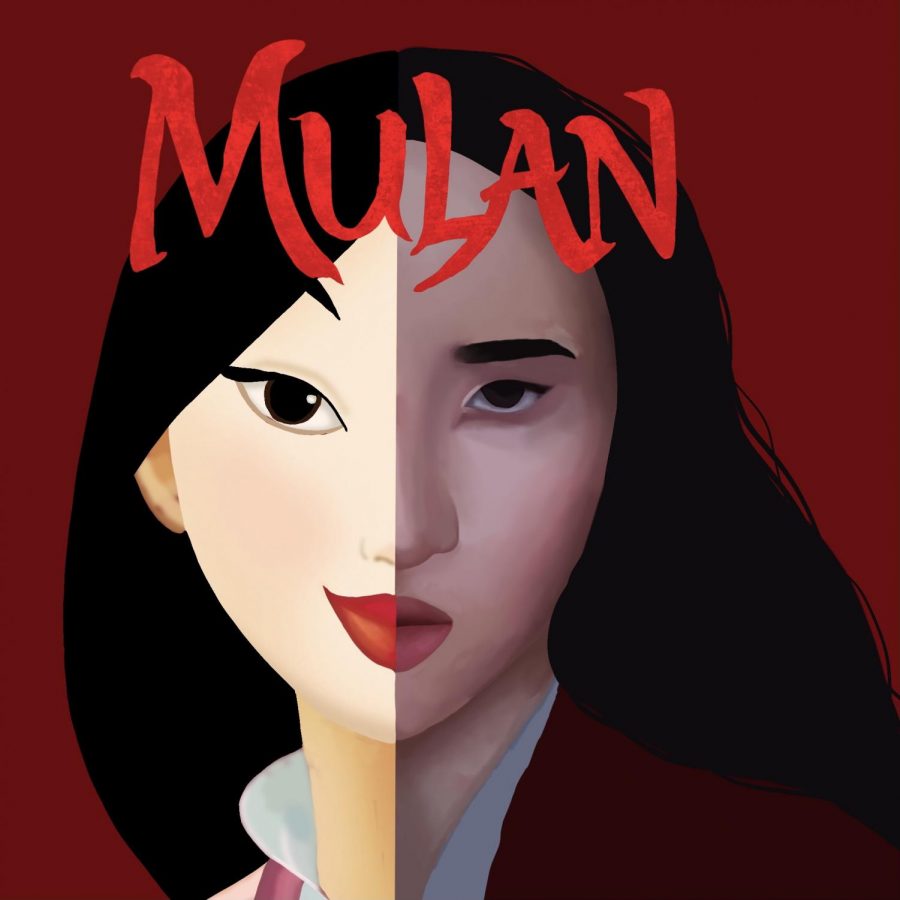The new live-action “Mulan” came out on Disney+ on September 4, 2020, for a fee of $30, but recently came out on the service for free on December 4, 2020. The film is based on the animated “Mulan” Disney princess movie from 1998.
“Mulan” revolves around a Chinese girl named Mulan, her family and her country. When China requires every family to offer a man to be drafted into the military, Mulan’s family is faced with a difficult circumstance. Mulan’s elder father is the only man in the family, and must therefore sacrifice his life to fight for his country, despite his injuries and old age. Bravely, Mulan pretends to be a man and takes her father’s place in the war.
As an Asian American, I was really excited to watch the new recreation of my favorite Disney princess movie. I hoped to finally see more Asian representation from Disney that I haven’t seen in the past; however, I was relatively disappointed with the changes the writers made to the storyline and the overall Asian representation behind the scenes.
Unlike the original movie, two major characters were removed in the live-action film: Mushu and Li Shang. Mushu, the dragon sidekick, was replaced by a new character, the Phoenix. Nevertheless, the Phoenix either doesn’t talk or get as involved in the storyline as Mushu did in the original animated film. Li Shang, Mulan’s love interest in the original movie, was removed from the live-action remake in order to respect the #MeToo movement.
Another major difference from the original was that it was no longer a musical. None of the characters sang, however, songs from the original, such as “Reflection,” were played instrumentally in the background.
Despite these major changes, among others, I applaud the remake for only including Asian actors, yet there were very few Asians working behind the scenes on the production. The director, screenwriters and costume designer were not of Chinese descent. I find this to be especially disappointing because I feel as though Disney was therefore doing the bare minimum to represent Asians by simply putting them in front of the camera instead of behind it as well.
“Mulan” was filmed in parts of China’s Xinjiang province, where the government is accused of detaining at least 1 million Muslim Uighurs, according to BBC News. Additionally, Liu Yifei, the lead actress playing Mulan, made comments that support the police force in Hong Kong who has been accused of police brutality. Both of these political issues make me dislike the movie further.
Despite the quality cinematics and Asian representation on screen, I criticize Disney’s “Mulan” remake for the vast changes from the original movie, lack of behind the scenes Asian representation, location and other political issues. Although I relatively enjoyed watching the movie, I’m overall disappointed with the production.













